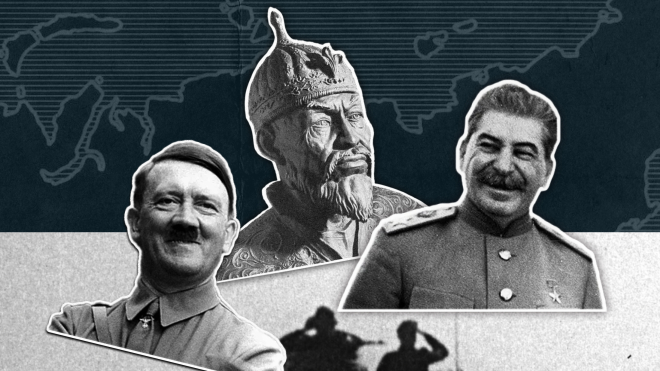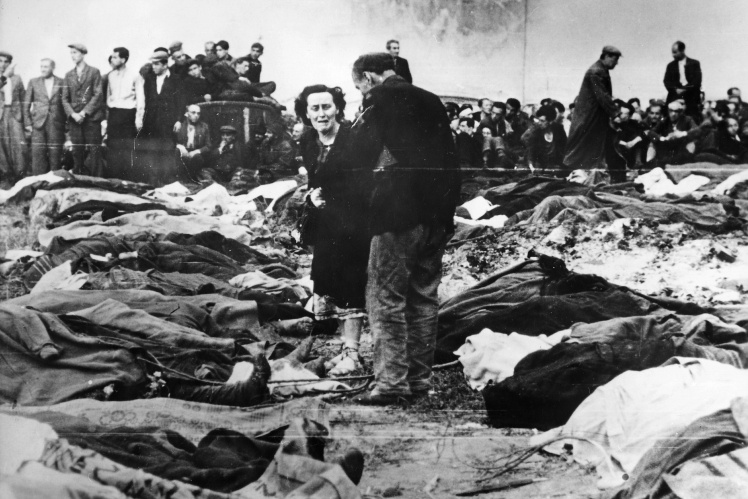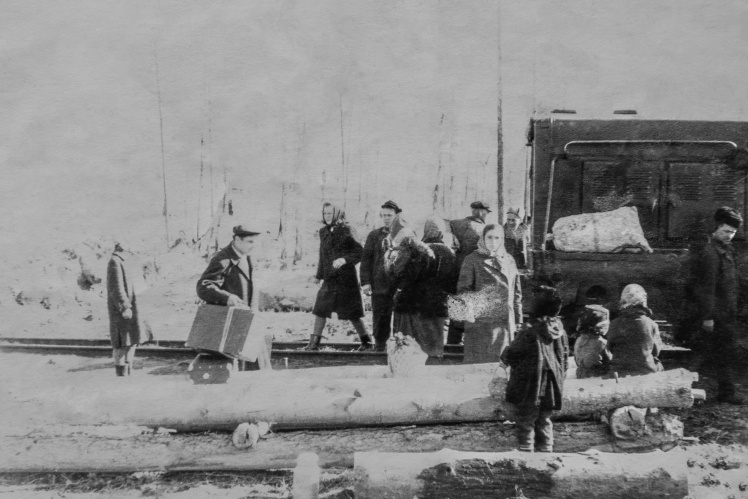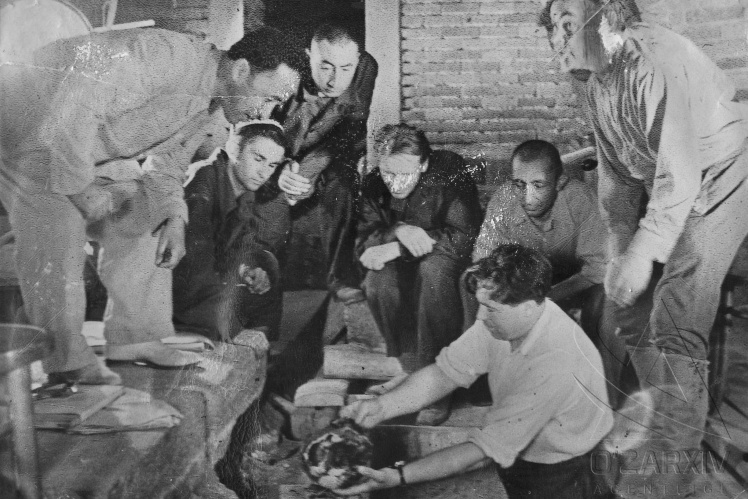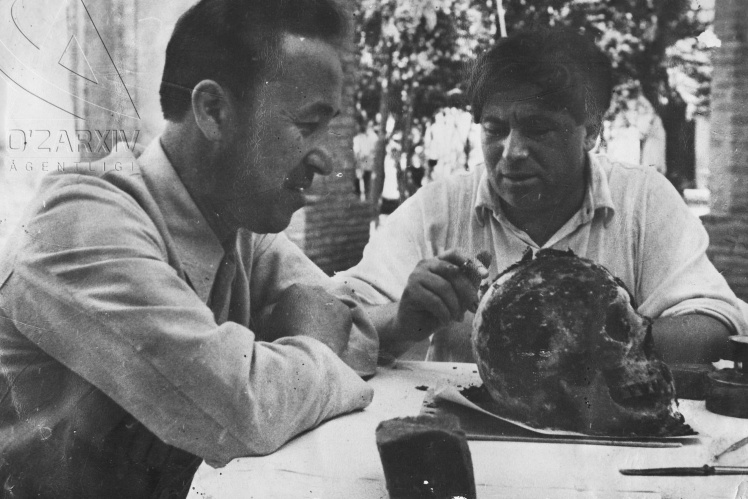Stalin didnʼt believe in war to the last. Since 1940, Soviet spies reported that Germany was transferring a large number of troops and equipment to the border with the USSR. The British and even the Chinese warned the Soviet leadership about the threat of an attack. However, Stalin believed that these were scaremongering and misinformation. For some reason, other, reassuring, and sometimes completely fantastic intelligence reports also came to him. For example, about communist sentiments which are presumably spreading among German soldiers, tales that they are deserting the army en masse, and German concentration camps are filled with hundreds of thousands of such deserters. All of this turned out to be fake.
The Soviet forces had an advantage in the number of equipment. So Stalin was convinced that even if Hitler decided to attack, the USSR would quickly retaliate and seize the initiative. Historians still debate whether Stalin intended to attack first. However, speaking in the Kremlin in front of graduates of military academies in early May 1941, he said: “We held a defensive line until a certain time. And now that we have reconstructed the army, saturated it with equipment for modern combat, when we have become stronger, now we should move from defense to offensive. The Red Army is a modern army, and a modern army is an offensive army. We should readjust our education, agitation, press in an offensive spirit.” Indeed, in Soviet propaganda theses about “a war with little blood and only on foreign land” began to appear.
Only during May and the first ten days of June 1941, 91 German planes violated the border of the USSR. The Kremlin said it was just the rattling of weapons. On June 21, 1941, Soviet pilots were ordered not to give in to provocations and not to open fire on German planes if they violated the airspace of the USSR.
A German deserter warned of an attack. Late in the evening of June 21, 1941, the corporal of the 221st sapper regiment of the 15th division of the Wehrmacht, Alfred Liskov, crossed the Western Bug River in the area of the city of Sokal in the Lviv region and surrendered to the Soviet border guards. He stated that Germany was planning an attack at dawn the next day. The commander of the border detachment, of course, didnʼt believe him, but reported to the management just in case. In a few hours, this message reached the commander of the Kyiv Military District, General Mykhailo Kyrponos, and he also did not believe this. The deserter was further interrogated. And he kept repeating: "Da ist ein Krieg!", until the border guards heard the roar of planes and explosions of shells.
German newsreel of the first day of the attack on the USSR on June 22, 1941.
Getty Images / «Babel'»
Soviet Chekists continued deportations and repressions. In 1939, the USSR together with Germany started the Second World War and captured the territories of Western Ukraine, Belarus, Moldova and occupied the Baltic states. Almost immediately, the NKVD began to arrest, shoot and deport all those who disagreed with the Soviet regime. In 1941, the largest wave of deportations took place in these lands. From May 22 to June 20, 1941, about 300,000 people were forcibly removed to special settlements in the most remote regions of the Soviet Union. The message of the Chekists to the Belarusian party leadership dated June 21, 1941 stated that over 20,000 people had been deported from Western Belarus in the previous day.
Ukrainians search for the bodies of relatives tortured and shot by the NKVD in the yard of a prison in Lviv, July 1941. A Ukrainian family returns home after being exiled to Siberia, 1965.
Getty Images / «Babel'»
From the end of 1940, one of Stalinʼs closest associates, the head of the NKVD, Lavrentiy Beria, organized another purge in the Red Army. Over 30,000 military personnel were repressed. Particularly large-scale purges were carried out among the leadership: 15 out of 16 army commanders, 50 out of 57 corps commanders, 154 out of 186 division commanders, and 401 out of 456 colonels were shot. Many other officers were simply dismissed.
At the end of May 1941, Beria took over the leadership of the Soviet Air Forces. During the month, ten generals were arrested on charges of espionage and anti-Soviet activities. Despite the German attack, Chekists continued to torture detainees, trying to get confessions. Eight of them were eventually shot. One of the rehabilitated, Kirill Meretskov, later rose to the rank of marshal of the Soviet Union. It was said that he was the only one allowed by Stalin to give a speech while sitting, because Meretskov had a damaged spine. However, few people remembered that he received this injury during torture in a Chekist prison.
Kyrylo Meretskov (right) while in command of the front, 1942.
Wikimedia / «Бабель»
Hitler sent a secret message to Benito Mussolini on the eve of the invasion of the USSR. The German command had been developing a plan to attack the Soviet Union since July 1940. However, regarding the date of the attack, Hitler hesitated until the last. On June 21, 1941, he sent a secret letter to his ally, Italian dictator Benito Mussolini. Hitler wrote that he “finally decided to put an end to the hypocrisy of the Kremlin”, and thanked in advance for any military assistance. But he warned that he would make the final decision on the start of the war only at seven oʼclock in the evening. Until then, he asked to keep everything a secret from the Italian ambassador in Moscow. “I will also wait until the last moment to inform my ambassador about the decisions,” Hitler said.
Adolf Hitler (left) and Benito Mussolini meet at a train station on the Italian-Austrian border, June 2, 1941.
Getty Images / «Babel'»
Germany officially declared war on the USSR. German diplomats prepared the corresponding document on the evening of June 21, 1941. In it, the Soviet Union was accused of violating the Non-Aggression Pact and the Treaty on Friendship and Borders. It was about the fact that “Bolshevik Moscow is ready to strike a blow in the back of National Socialist Germany, which is waging a struggle for existence... Therefore, the Führer ordered the German army to repel this threat by all means and forces.”
At half past four in the morning on June 22, 1941, the German ambassador in Moscow, Friedrich Werner von der Schulenburg, handed this document to the head of the USSR Foreign Ministry, Vyacheslav Molotov. A similar procedure took place in Berlin, where the head of the German Foreign Ministry, Joachim von Ribbentrop, informed the Soviet ambassador, Vladimir Dekanozov, about the beginning of the war.
Even American newspapers published the text of the document. And only the Soviet propaganda claimed about “an insidious attack without a declaration of war” until the very collapse of the Soviet Union.
The movie Citizen Kane was discussed in the USA in those days. This is the directorial debut of Orson Welles, who at the same time co-wrote the script and played one of the main roles. The tape tells the life story of media mogul Charles Foster Kane, whose prototype was one of the founders of the “yellow press” genre, the American publisher William Hearst. He didnʼt like the movie, and he declared a real media war on Welles. Because of this, the picture got to the screens with great difficulty. The premiere took place in May 1941, the film was liked by film critics, but thanks to Hearstʼs efforts, it didnʼt get much money at the box office. Citizen Kane received worldwide recognition only in the mid-1950s and has been on the list of “greatest films of all time” ever since.
Orson Welles as Charles Foster Kane, a still from the movie Citizen Kane, 1941.
Getty Images / «Babel'»
The song Chattanooga Choo Choo was gaining popularity. It was recorded in May 1941 by the American trombonist and leader of one of the most famous jazz orchestras in history, Glen Miller. The song was included in the musical Sunny Valley Serenade, which was released on August 21, 1941. This made her even more popular. In 1942, Chattanooga Choo Choo became the first “gold record” in music history when it sold over a million and a half.
In Kyiv, city authorities were preparing to open a new stadium. After a five-year reconstruction, a football arena with grandstands for spectators, a pavilion with changing rooms, judgesʼ rooms and doctorsʼ offices appeared on the site of the Red Stadium. The new arena called Republican Stadium was planned to be opened on June 22, 1941 with a football match between Dynamo FC from Kyiv and CSKA from Moscow. The opening had to wait until June 25, 1944, when the match scheduled for 1941 took place. Since 1996, it has been called National sports complex Olimpiyskiy.
The Republican Stadium in Kyiv during the German occupation, 1942.
Wikimedia / «Бабель»
The Curse of Tamerlaneʼs Tomb. In June 1941, an expedition of Soviet scientists began excavating the tomb of the Turko-Mongol conqueror of the 14th — early 15th century Tamerlane in the Uzbek city of Samarkand. Local residents and clergy tried to prevent the archaeologists, especially when they heard that they were going to open the tomb. Locals told legends: whoever disturbs Tamerlaneʼs ashes will be cursed, and the world will suffer a great calamity. Of course, the scientists rejected superstitions and on June 19 removed the heavy tombstone. The next day Tamerlaneʼs remains were found.
Opening of Tamerlaneʼs tomb in Samarkand, 1941. Soviet scientists examine the skull of Tamerlane, 1941.
O'ZARXIV Agentligi / «Бабель»
The fact that Germany attacked the USSR in two days was just a coincidence. After all, Hitler planned the invasion long before the opening of the tomb. However, supporters of the mystical theory emphasize another “coincidence”. At the end of 1942, Tamerlanʼs body was returned to Samarkand and reburied with all rituals. And in a few months, the Soviet troops defeated the Germans in the Battle of Stalingrad, which became one of the turning points in the Second World War.
Translated from Ukrainian by Anton Semyzhenko.
The real curse of all time is crazy dictators, and the panacea for dictatorship is a free media. Support Babel: 🔸 in hryvnia 🔸 in cryptocurrency 🔸 Patreon 🔸 PayPal: [email protected]
